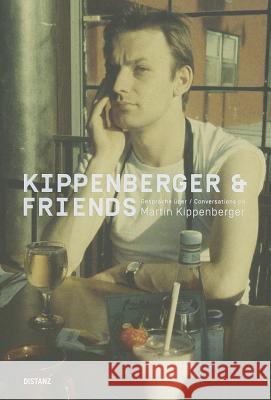Kippenberger & Friends » książka
Kippenberger & Friends
ISBN-13: 9783954760053 / Angielski / Twarda / 2013 / 224 str.
-German artist Martin Kippenberger died in 1997 (b. Dortmund 1953). His work has been internationally celebrated since his death and now occupies a solid place in the most important art collections and museums in the world. Now as then, the question as to the value of his work triggers lively debate: praised as the Beuys of the 1980s, the German Warhol or Picabia's successor, he is equally well known as a dilettante and genius, enfant terrible and provocateur, relentless networker and visionary.
Largely ignored by the art market for decades, he strove for recognition, which he initially received from only a small circle. For Kippenberger, who was merciless in his criticism, there was no joke too personal or too close to the bone, no provocation too injurious in testing how far he could go, not only with his opponent, but also with himself. The professional self-publicist understood like no other before him in Germany how to make a show out of his art and his life, always doing so in a way that simultaneously pushed back the boundaries of art itself. Once the ball was rolling, it was not allowed to stop. Kippenberger spared neither himself nor others and his short but intense life and extremely diverse corpus of work are a testament of this.
The interview book --Kippenberger & Friends-- comes closer to uncovering Kippenberger the myth, through 25 conversations with artists, curators, gallerists, and friends. And it is predominantly the latter who give us their view on someone who left a lasting impression on them, in descriptions that are contemplative, funny, critical, and also self-ironic. The extremely personal memories bring to life not only Kippenberger himself; they also create a dense picture of the cultural life in a Germany which, torn between the sensationalist Springer press and student revolts, the hedonistic consumer culture of yuppies and the provocative rebellion of the punk scene, still had to become convinced of the maxims of its own actions.
Josephine von Perfall started her doctorate degree on Martin Kippenberger in 2010 at the Department of History of Art at the University of Cambridge. The role he played in the development of post-war German art, in particular in his capacity as a -networker, - cannot, von Perfall asserts, be overestimated, and it is this role that is the key to understanding one of the most important chapters in German post-war art.-











